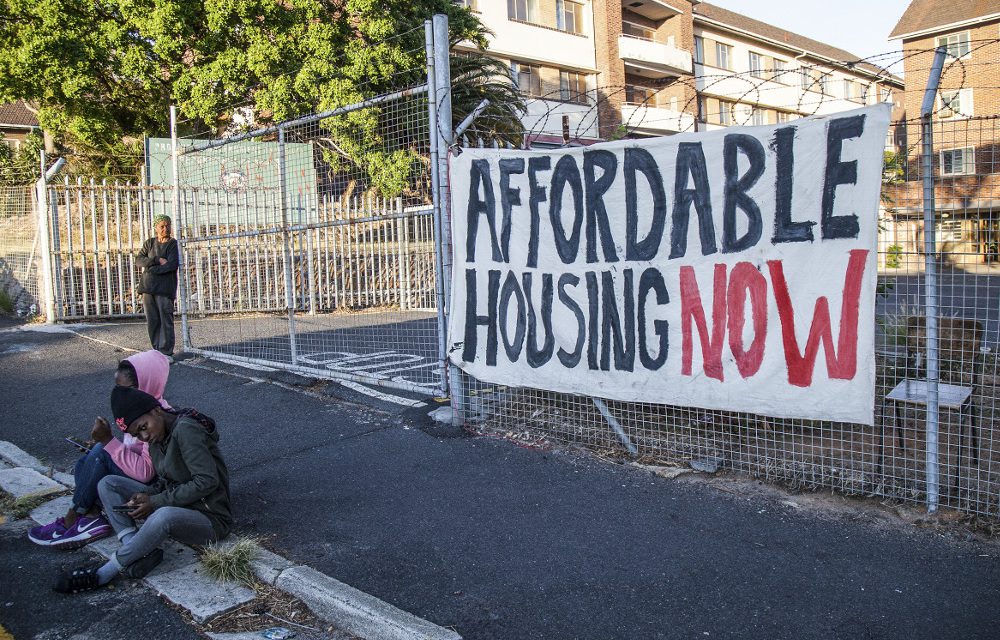The ongoing legal battle over the Tafelberg site in Cape Town has reignited discussions around spatial justice and the government’s obligation to provide affordable housing in well-located areas. Human rights organisation Ndifuna Ukwazi argues that the case represents a defining moment in the struggle to reverse the legacy of apartheid-era spatial planning, which continues to push working-class communities to the peripheries of the city, far from economic opportunities and essential services.
The Constitutional Court recently heard arguments in the case but has reserved judgment, leaving the fate of the contested site—and broader affordable housing policies—hanging in the balance.
At the heart of the case is whether the Western Cape Government and the City of Cape Town are justified in claiming that it is financially unfeasible to develop affordable housing on the well-located Tafelberg site. Activists argue that the failure to prioritise affordable housing in central Cape Town perpetuates existing inequalities and reinforces the segregationist policies of the past.
Ndifuna Ukwazi’s Executive Director, Mpho Raboeane, has been vocal about the case’s significance.
“If the Tafelberg case is unsuccessful in the Constitutional Court, it will be a devastating loss for the thousands of Capetonians who remain locked out of well-located areas,” Raboeane said. “They are forced to live on the outskirts of the city, far from jobs, schools, and opportunities.”
Raboeane further elaborated on what constitutes affordable housing, explaining that it refers to housing that aligns with residents’ incomes. “Seventy-six percent of Cape Town households earn under R22,000 a month, yet only 34% of the housing stock caters to them. The median household income for those in need of affordable housing is R4,500, which means housing opportunities must be priced accordingly,” she stated.
Raboeane also pointed out that the City of Cape Town and the Western Cape Government have not built a single affordable housing unit in the inner city since the dawn of democracy in 1994. “The issue isn’t just about the number of houses built, but their location. We need housing that is accessible and close to jobs, healthcare, and education,” she emphasised.
The Western Cape Government, in a statement following the hearing, acknowledged that the Constitutional Court had reserved judgment on the Tafelberg matter. Infrastructure MEC Tertius Simmers reiterated the province’s commitment to affordable housing, albeit with limitations.
“The Western Cape Government remains committed to using its immovable assets to facilitate the provision of affordable housing opportunities, where feasible, in well-located areas,” said Simmers.
Simmers highlighted that part of the Tafelberg site is planned for affordable housing, but heritage restrictions complicate its development. “The entire site is designated as a heritage site, and the school building has been classified as a provincial heritage building. This limits its potential uses, making it unsuitable for residential conversion,” he explained. He also noted that the province has initiated a public participation process to gather feedback on the proposed development.
Another challenge the government faces is unlawful land occupations, which Simmers warned could slow down housing projects. “It is worrisome that many sites earmarked for housing development in Cape Town are unlawfully occupied. Lawful beneficiaries must remain the priority,” he stated.
Regardless of the court’s ruling, Ndifuna Ukwazi and other housing activists remain steadfast in their fight for spatial justice. “This fight is bigger than Tafelberg,” Raboeane said. “It is about the right of every Capetonian and South African to live with dignity in a city that does not shut its doors on the poor.”
The Tafelberg case has sparked a broader conversation about how public land is allocated and whether government policies are doing enough to address decades of spatial injustice. Critics argue that if public land continues to be sold to private developers rather than used for affordable housing, Cape Town risks deepening its inequalities rather than addressing them.
With the Constitutional Court’s judgment still pending, the outcome of this case could have long-term implications for urban development and housing policy across the country. Advocates for affordable housing insist that the struggle will continue, no matter the verdict. “We will not stop until Cape Town becomes a city where all its people, regardless of race or class, can live with dignity and access the opportunities they deserve,” Raboeane concluded.

















